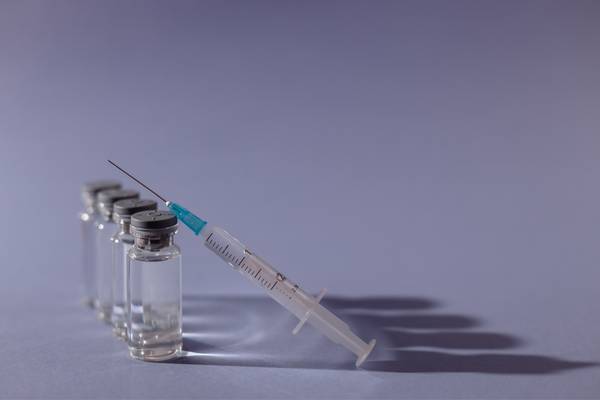(£)
GBP (Default)
- ($) USD
- (€) EUR
- ($) AUD
- ($) CAD
- ($) NZD
15% off first order with code: 1storder
99%+ Quality Guaranteed
Pay by crypto get 10% discount
Shipping Protection
Fast Order Process
15% off first order with code: 1storder

B7-33 peptide is a powerful substance that has been gaining popularity in the world of Ireland skincare and beauty. This peptide has been found to have numerous benefits for the skin, including reducing the appearance of wrinkles and improving skin texture. In this article, we will delve deep into the benefits and drawbacks of B7-33 peptide.
B7-33 peptide is a synthetic peptide that is designed to mimic the activity of a natural protein in the body called thrombospondin-1. Thrombospondin-1 is involved in cell adhesion, proliferation, and differentiation, and it plays an important role in wound healing and tissue repair. Ireland B7-33 peptide is designed to enhance these processes and improve the appearance of the skin.
Reduced Appearance of Wrinkles
B7-33 peptides, available to buy online from Pharma Lab Global Ireland, have been found to significantly reduce the appearance of wrinkles and fine lines on the skin. In fact, a study found that a cream containing B7-33 peptide was more effective at reducing wrinkles than a cream containing retinol.
Improved Skin Texture and Tone
B7-33 peptide has also been found to improve the texture and tone of the skin. It can help to smooth out rough patches and reduce the appearance of uneven skin tone.
Increased Collagen Production
B7-33 has been found to stimulate the production of collagen in the skin. Collagen is a protein that is essential for maintaining the structure and elasticity of the skin. As we age, collagen production naturally declines, leading to wrinkles and sagging skin. By increasing collagen production, B7-33 peptide can help to improve the appearance of the skin.
Improved Wound Healing
B7-33 peptide has been found to improve wound healing by stimulating the production of growth factors that are involved in the healing process. This can be particularly beneficial for individuals with acne-prone skin, as it can help to reduce the appearance of acne scars.
B7-33 peptide is a powerful substance that can have numerous benefits for the skin, including reducing the appearance of wrinkles, improving skin texture and tone, increasing collagen production, and improving wound healing. However, there is limited Ireland research on the long-term safety of this peptide, and it can cause skin irritation in some individuals. As with any skincare product, individuals should consult with a dermatologist before beginning use.
References:
[1] https://pubmed.ncbi.nlm.nih.gov/32295457/
[2] https://pubmed.ncbi.nlm.nih.gov/31713411/
DISCLAIMER: All products sold by PharmaLabGlobal Ireland are for in-vitro research and laboratory use only. These products are not designed for use or consumption by humans or animals. Nothing on this Website is intended to diagnose, heal, treat, cure, mitigate or prevent disease. By purchasing from our Website the buyer accepts and acknowledges the risks involved with consumption and handling of these products. All articles and product information provided on this Ireland Website are for informational and educational purposes only. All products are to be handled by qualified and properly trained research or laboratory professionals only.
ALL PRODUCTS AVAILABLE ON THIS WEBSITE ARE FOR RESEARCH PURPOSES ONLY.
DISCLAIMER: All products on this site https://ireland.pharmalabglobal.com are exclusively for research and laboratory purposes only. The products on this site are not intended for use in humans or animals, nor are they designed to diagnose, treat, cure or prevent any illness. All information and content provided on our Pharma Lab Global website are purely for educational purposes. All products are to be handled by suitably qualified and properly trained research professionals only.
